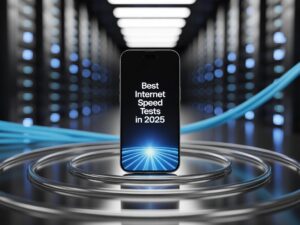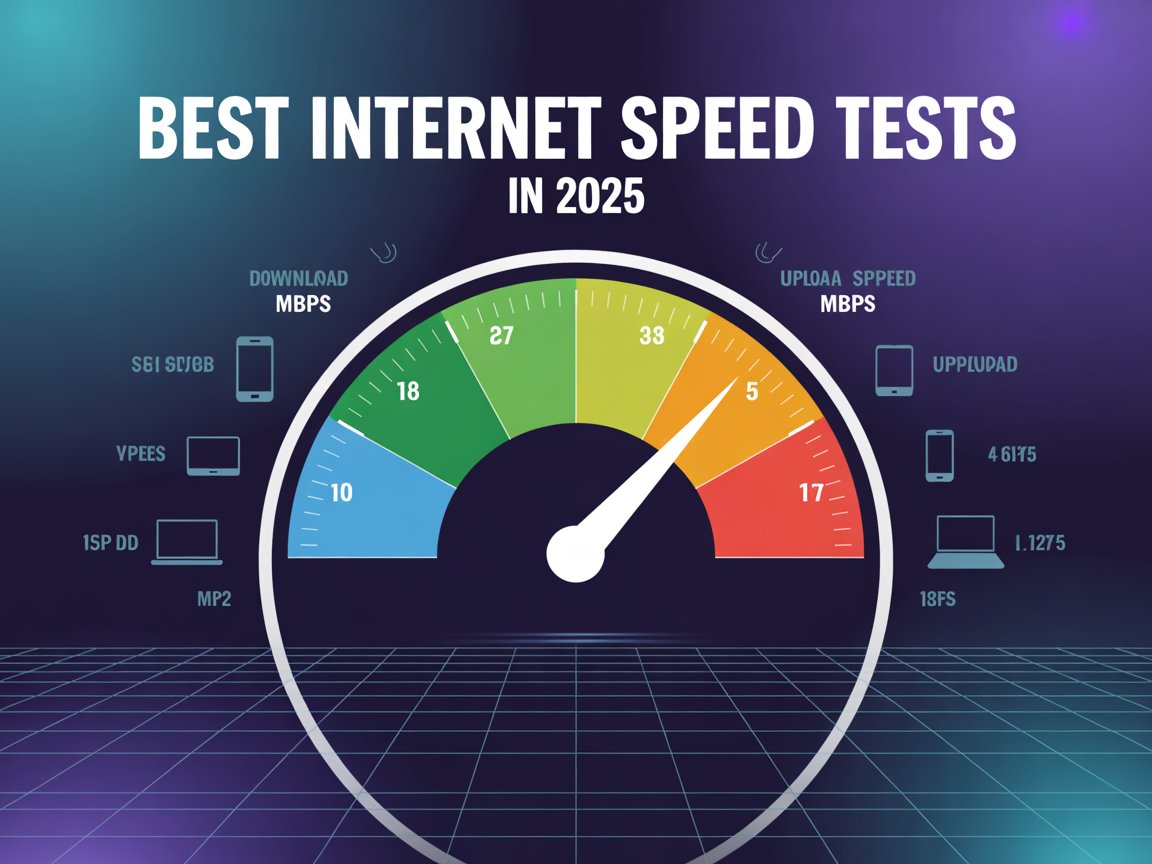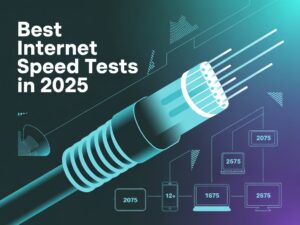Best Internet Speed Tests in 2025: Which One Gives the Most Accurate Results?
Have you ever noticed that sometimes your internet feels sluggish, even though your ISP (Internet Service Provider) promises “blazing fast” speeds? You’re not alone. In 2025, as more of our lives shift online — from remote work and 8K video streaming to VR gaming and cloud computing — knowing your actual connection speed is critical.
The problem? Not all speed tests are created equal. Some exaggerate results, others focus on specific aspects like streaming, and a few are influenced by the location of their test servers. So, how do you find the Best Internet Speed Tests in 2025 — the ones that give truly accurate results?
In this post, we’ll break it down like a recipe — because testing your internet is a lot like cooking: you need the right ingredients (tools and conditions), the right timing, and the right steps to get the perfect result.
Ingredients List
The perfect “recipe” for accurate internet speed testing requires more than just clicking ‘Go.’ Here’s what you’ll need:
1. A Reliable Device
Use a modern laptop, desktop, or smartphone with the latest updates. Outdated hardware can limit test accuracy.
2. Stable Connection Type
- Ethernet cable: Most accurate, stable, and consistent results.
- Wi-Fi: Convenient but prone to interference.
- 5G Mobile Data: Test your mobile internet performance.
3. Top Internet Speed Testing Tools for 2025
- Ookla Speedtest.net – Industry leader, large server network, accurate for general testing.
- Netflix Fast.com – Best for streaming-focused performance checks.
- Google Fiber Speed Test – Simple, lightweight, and fast.
- nPerf – Detailed performance analytics with global comparisons.
- Cloudflare Speed Test – Includes DNS speed and security insights.
4. A Clear Network
Pause downloads, streaming, cloud backups, and gaming while testing.
5. VPN Off (Unless Testing VPN Performance)
VPN encryption can lower speeds by 10–30%, so turn it off for baseline tests.
Timing
When and how you test can significantly impact results:
- Preparation Time: 2 minutes (closing apps, choosing test).
- Test Duration: 30–60 seconds per run.
- Multiple Tests: Run 3–5 times for accuracy.
- Best Testing Times:
- Peak Hours: 7–9 PM — see your internet’s worst-case scenario.
- Off-Peak: 5–7 AM — check your best speeds.
Pro Tip: ISPs may throttle speeds during peak usage. Testing at different times helps you see patterns.

Step-by-Step Instructions
Step 1: Prepare Your Environment
Disconnect devices you’re not using. For example, if your smart TV is streaming Netflix in the background, it will skew results.
Step 2: Connect Directly if Possible
Use an Ethernet cable for your first test. This removes Wi-Fi interference and gives a true baseline.
Step 3: Pick Your First Speed Test Tool
For general use, start with Ookla Speedtest.net. Select a server close to your location for accurate latency measurement.
Step 4: Run a Streaming-Focused Test
Next, run Netflix Fast.com. This test uses Netflix’s own content delivery network (CDN) to show real-world streaming speeds.
Step 5: Compare and Analyze
If results differ greatly, it could be due to different testing servers, congestion, or ISP prioritization.
Step 6: Repeat at Different Times of Day
Test morning, afternoon, and evening. Record results to spot trends.
Nutritional Information
Think of these metrics as your internet’s “nutrition label”:
| Metric | Definition | Ideal Range in 2025 |
|---|---|---|
| Download Speed | How quickly data is received. | 100 Mbps+ for homes, 300 Mbps+ for heavy streaming/gaming. |
| Upload Speed | How quickly data is sent. | 20 Mbps+ for HD video calls, 50 Mbps+ for live streaming. |
| Ping (Latency) | Time taken for a signal to travel to the server and back. | Under 30 ms for gaming. |
| Jitter | Variability in ping. | Under 5 ms for smooth streaming/calls. |
| Packet Loss | Percentage of data packets lost. | 0% ideal. |
Healthier Alternatives
If your speeds aren’t up to par, try these upgrades:
- Switch to Fiber Optic Internet – Faster, more stable, less affected by distance.
- Upgrade Your Router – Wi-Fi 6E or Wi-Fi 7 routers boost performance.
- Use Mesh Wi-Fi Systems – Perfect for large homes with dead spots.
- Change ISPs – If your provider consistently underperforms, shop around.
Serving Suggestions
Once you’ve gathered your results, put them to good use:
- Negotiate with Your ISP – Show them proof if speeds are below your plan’s promises.
- Track Long-Term Performance – Keep a log to detect trends or gradual slowdowns.
- Compare ISPs Before Switching – Use your data to make an informed choice.
- Test New Equipment – Check speeds before and after upgrading your modem/router.
Common Mistakes to Avoid
- Testing Only Once – Speeds vary; a single test won’t tell the full story.
- Using Only One Testing Tool – Cross-checking ensures accuracy.
- Testing Over Busy Wi-Fi – Interference and congestion distort results.
- Ignoring Server Location – A faraway test server can make speeds look worse than they are.
Storing Tips
Keep your results organized for future reference:
- Spreadsheets: Record date, time, and speed results.
- Screenshots: Save proof in case you need to show your ISP.
- Cloud Backups: Store your speed logs online so you can access them anywhere.
Conclusion
In 2025, finding the Best Internet Speed Tests isn’t just about picking a popular site. It’s about understanding how and when to test, choosing the right tools, and knowing what the numbers actually mean.
By combining Ookla Speedtest.net for precision, Netflix Fast.com for streaming insight, and Cloudflare’s Speed Test for deeper network analysis, you can get a full picture of your connection’s health.
Now it’s your turn — run a test today, share your results in the comments, and subscribe for more tech tips to keep your connection lightning-fast.
FAQs
Q1: Which speed test is the most accurate in 2025?
A: Ookla Speedtest.net is the most reliable for overall accuracy, but combining it with Fast.com gives a more complete picture.
Q2: Why do different speed tests give different results?
A: Differences in test servers, network congestion, and test methods cause variations.
Q3: How often should I test my internet speed?
A: Monthly for general checks, weekly if troubleshooting slow speeds.
Q4: Should I test using Wi-Fi or Ethernet?
A: Ethernet gives the most accurate reading; Wi-Fi shows your real-world usage performance.
Q5: Can VPN affect speed test results?
A: Yes, VPN encryption often reduces speeds by 10–30%.


